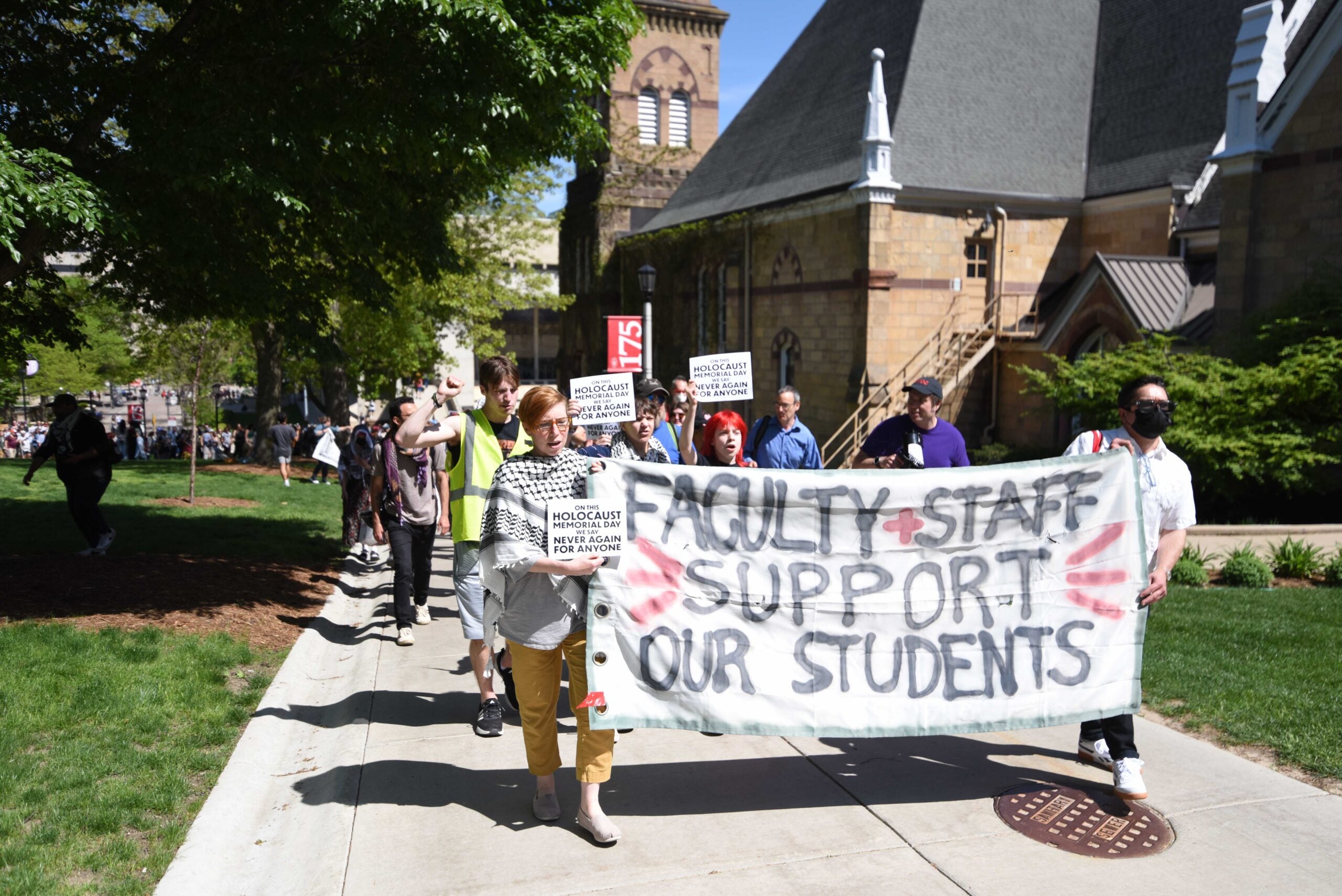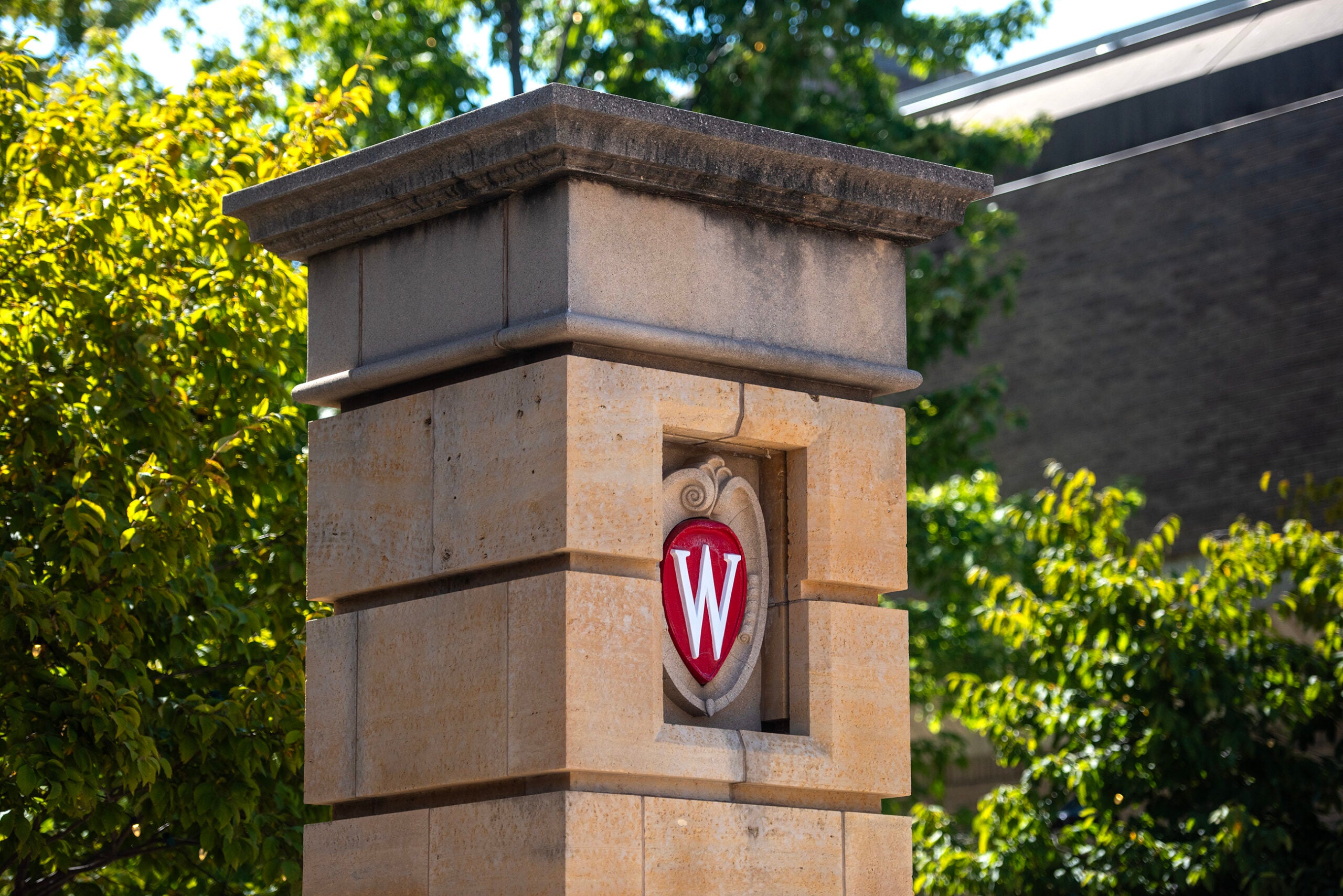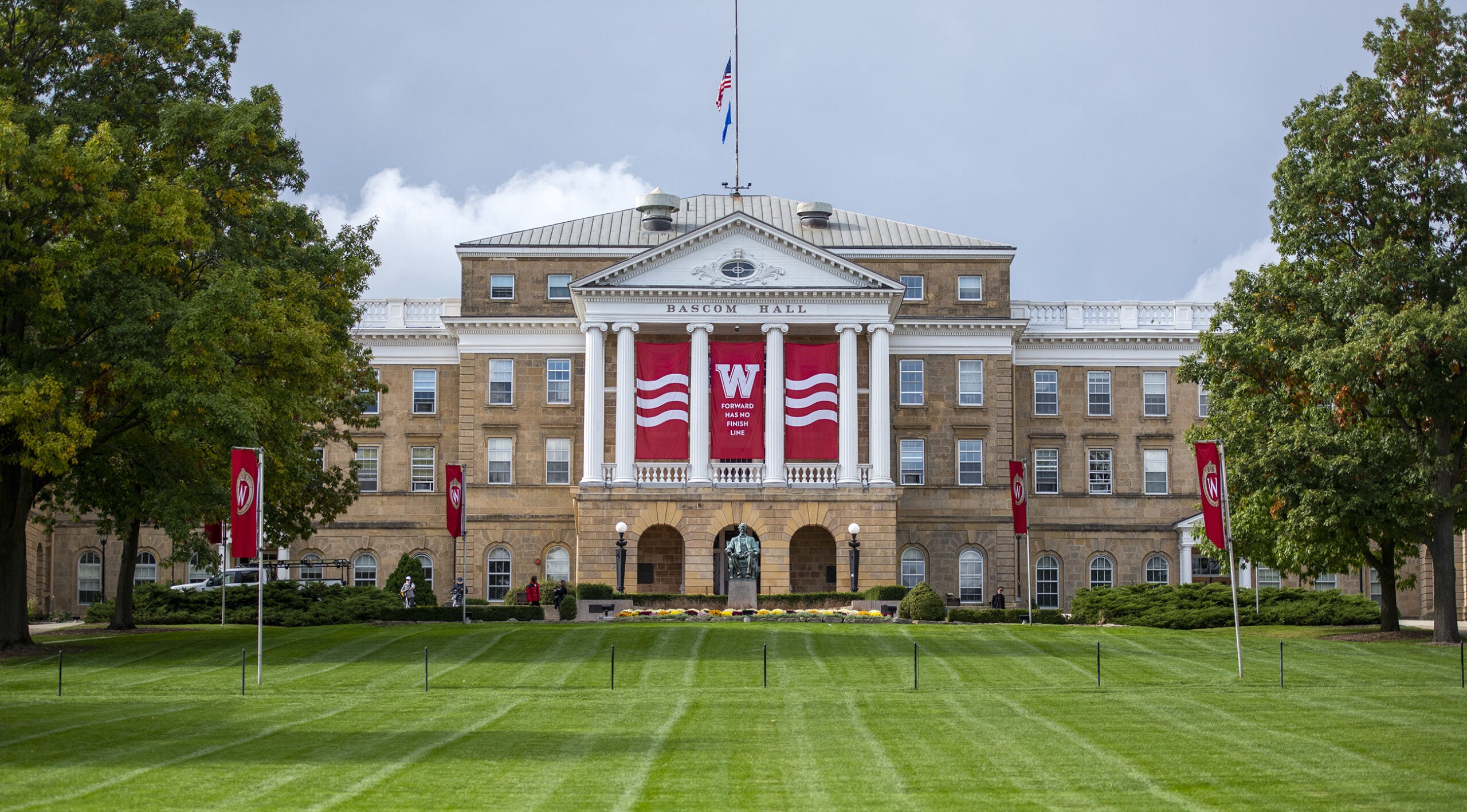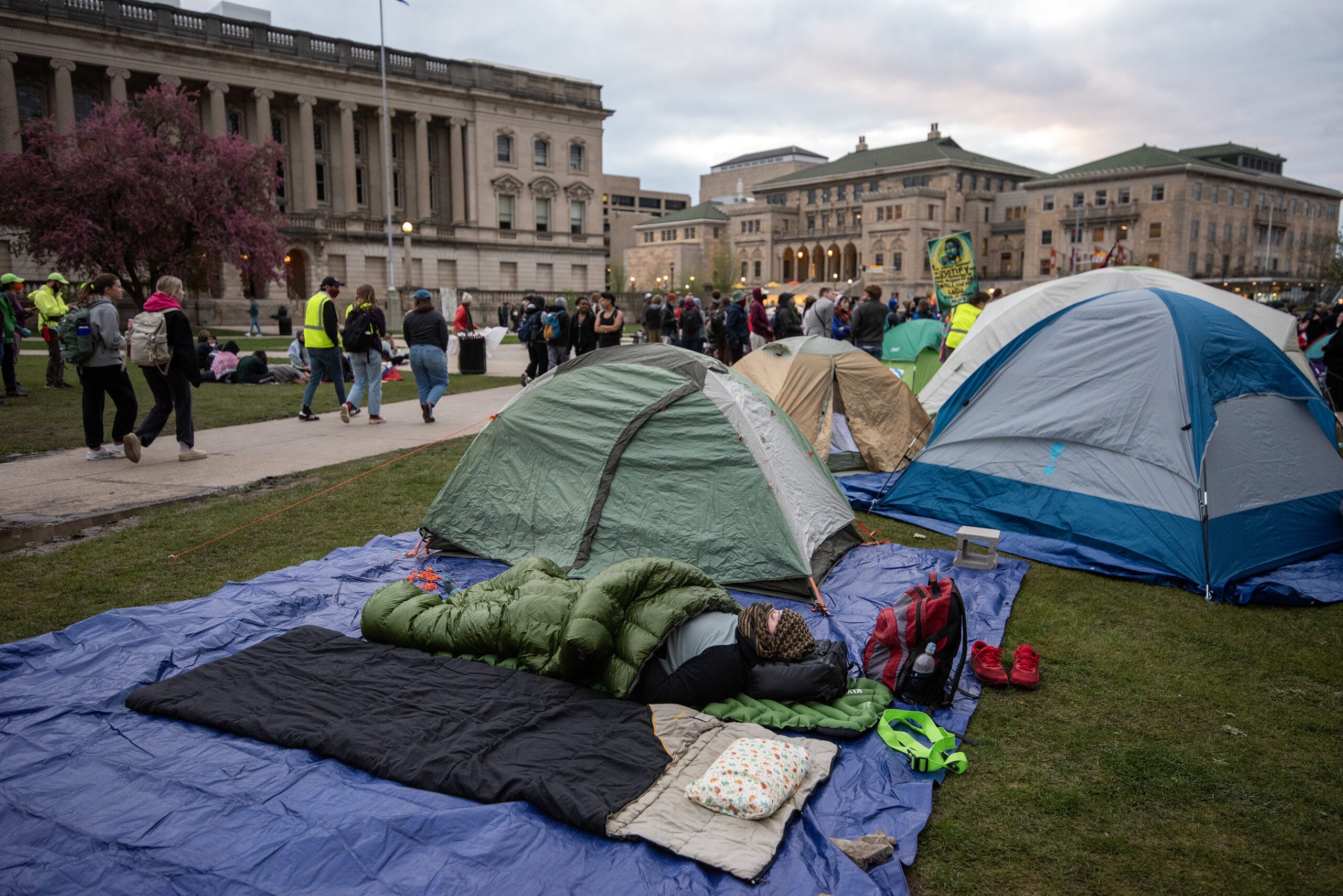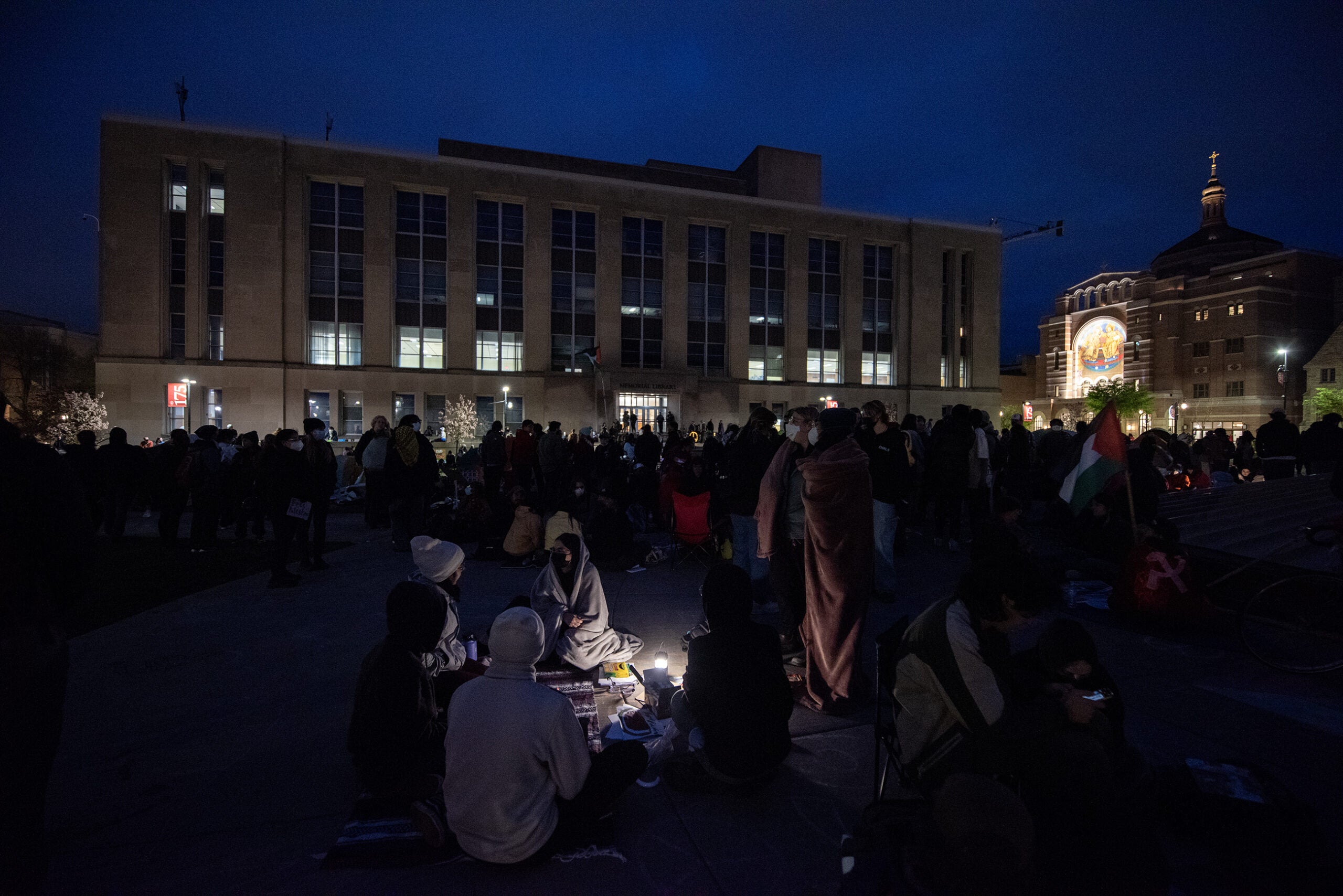Several dozen faculty and staff members from the University of Wisconsin-Madison staged a walkout Monday in opposition to the university administration’s response to a pro-Palestinian encampment on campus.
The walkout led to about 200 protesters marching to the last scheduled Faculty Senate meeting of the academic year. There, professors spoke out against police action that turned volatile when officers broke down the encampment last week.
During the Faculty Senate meeting, UW-Madison Chancellor Jennifer Mnookin stood by the decision to have police clear the encampment. She said the encampment is both illegal and a safety concern.
News with a little more humanity
WPR’s “Wisconsin Today” newsletter keeps you connected to the state you love without feeling overwhelmed. No paywall. No agenda. No corporate filter.
“We are increasingly concerned about reports of incendiary rhetoric, antisemitic comments, the potential for violent conflict with outside groups, Islamophobic comments and the risk of seeing this entire situation spiral out of control,” Mnookin said during the meeting.
She added that state law expressly forbids camping on university grounds — and unlike some private institutions, the university cannot close its grounds to outsiders.
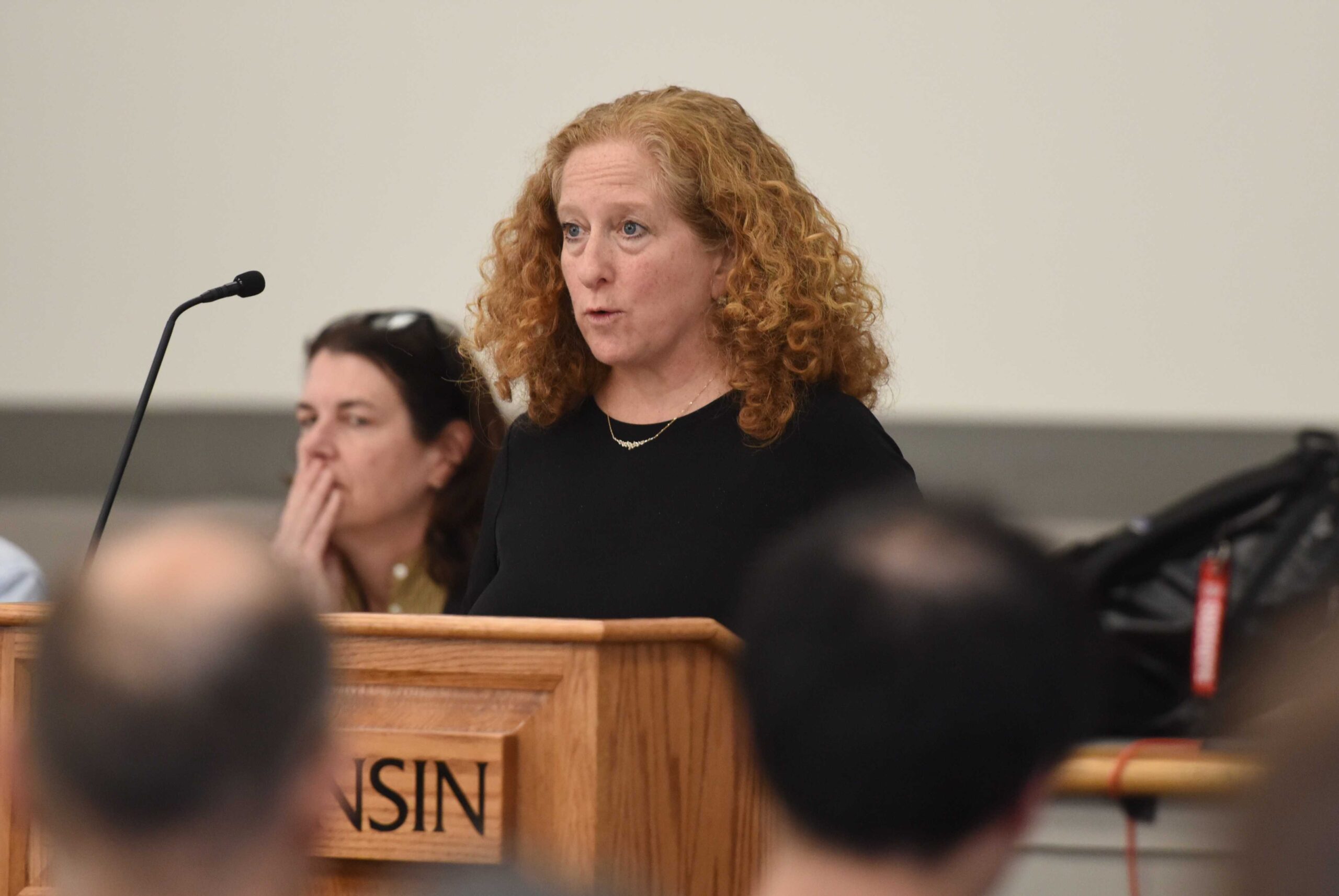
“To be clear, the threat is not simply about internal friction or potential flashpoints within parts of our community who see the world very differently from one another,” she said. “An illegal encampment creates still more significant external risks.”
Mnookin pointed to antisemitic chalkings found Saturday at the Dane County Farmers Market as an example of incendiary rhetoric.
The university is now investigating two student organizations in connection to the chalkings for violations of university policies, according to a statement released Monday.
Mecha de UW Madison and Anticolonial Scientists will both be on an interim suspension until the investigation is complete.
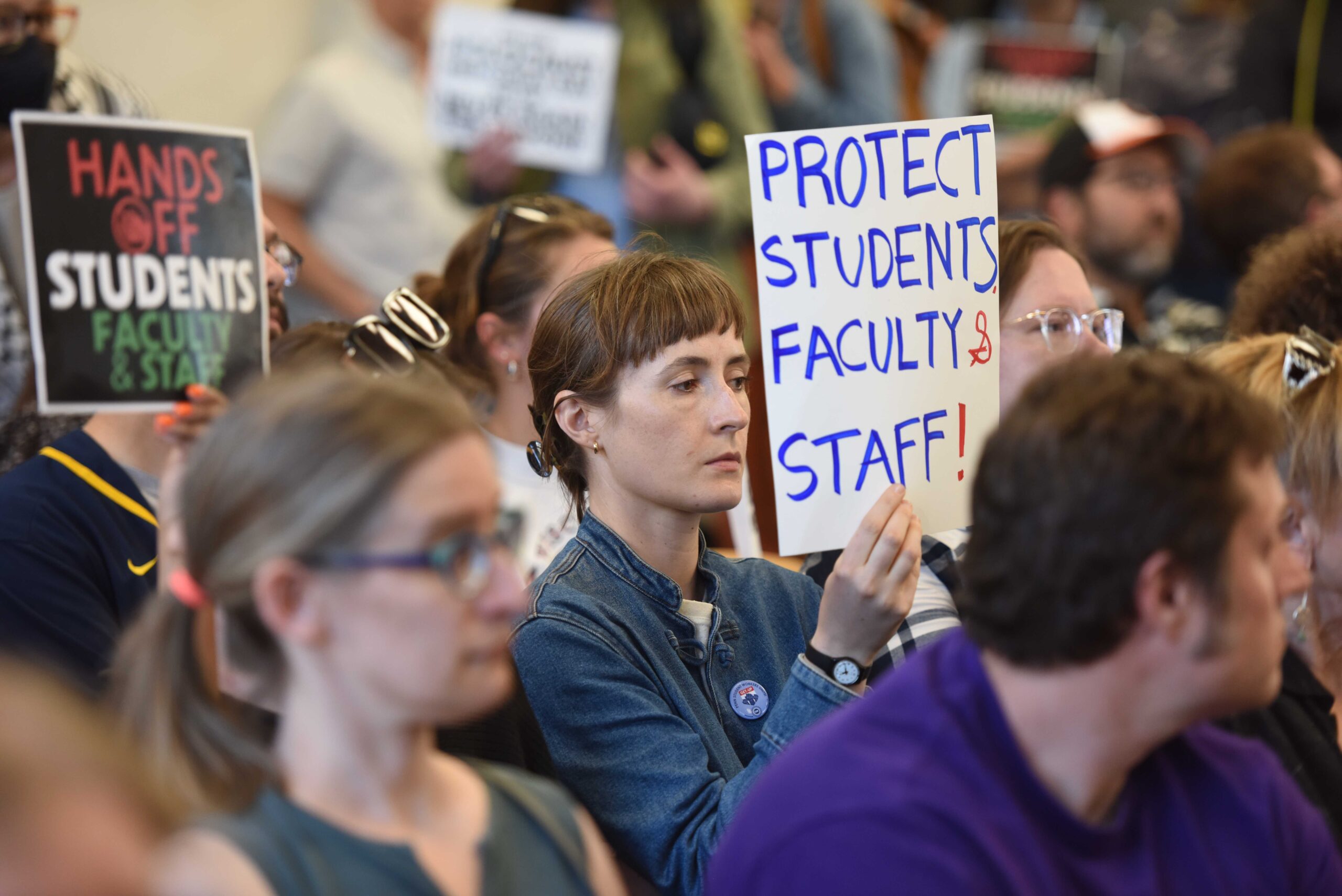
Faculty questions ‘escalatory and harmful action’
Most of the professors who spoke during public comment were in support of the protesters. Professor Samer Alatout, who is Palestinian and an advisor to Students for Justice in Palestine, was injured while clashing with police on May 1.
“I think that the administration moving towards the extreme of calling the police is problematic,” Alatout said at the meeting. “But another thing that is really problematic is that three of the faculty members who were detained and who were injured were faculty of color. I have to ask the question: why?”
Some members of the Faculty Senate said they had gathered enough signatures to call an additional meeting — in hopes the group will consider resolutions condemning the police action and calling on the university to divest from all Israeli institutions and Israel-aligned companies.
But Mnookin dismissed nearly all of the student and faculty demands Monday.
She said the university couldn’t make an exception to restrictions against camping without allowing other controversial groups to do the same.
She also said she doesn’t make investment decisions for the university or support cutting academic ties with Israeli institutions. Ending a graduate exchange fellows program would be a violation of state law, she said.
“It would run counter, in my opinion, to our deeply held respect for academic freedom and the free exchange of ideas,” she said. “I, and I know many of you, believe that it’s dangerous to limit our academic engagements based on viewpoints.”
That leaves the university administration and protesters at a standstill. Protesters have said they plan to stay at the encampment until their demands are met. And campus leaders agreed Saturday to refrain from asking police to clear the encampment if productive discussions continue with the protesters.
Alatout said if students do not reach an agreement and police are sent in again, he will stand with students against the police.
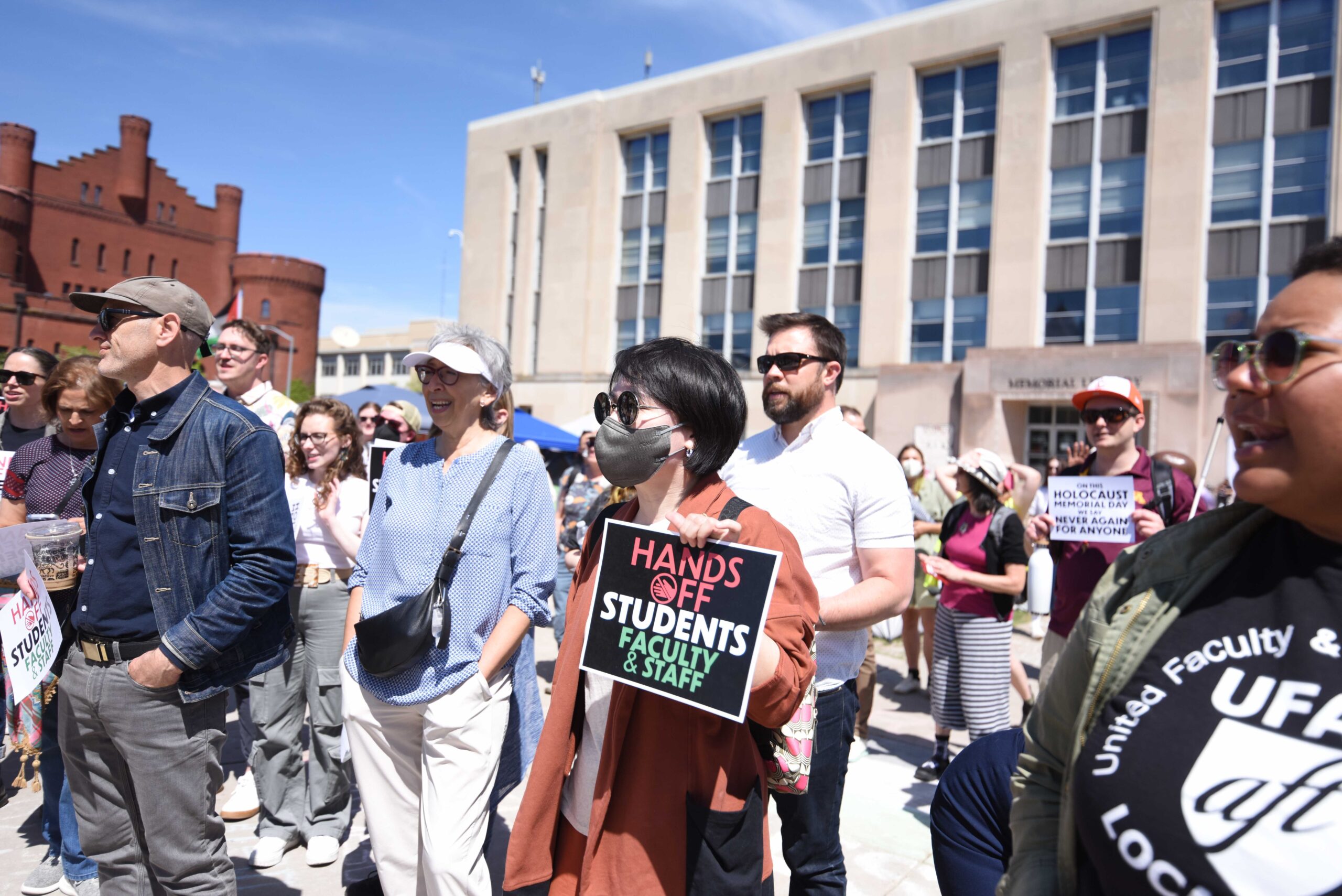
Keith Woodward, a professor who read a statement on behalf of the geography department, said the encampment was peaceful both before and after the arrests.
“Directing campus, city, county and state police to take down the encampment by force was an unnecessary, disproportionate, escalatory and harmful action,” he said.
“This shameful action was a failure of leadership who refused to engage in dialogue with student protesters. We are angry and grieving for those who were harmed by it,” Woodward continued, “and we demand transparency and accountability by our leadership for the actions taken further.”
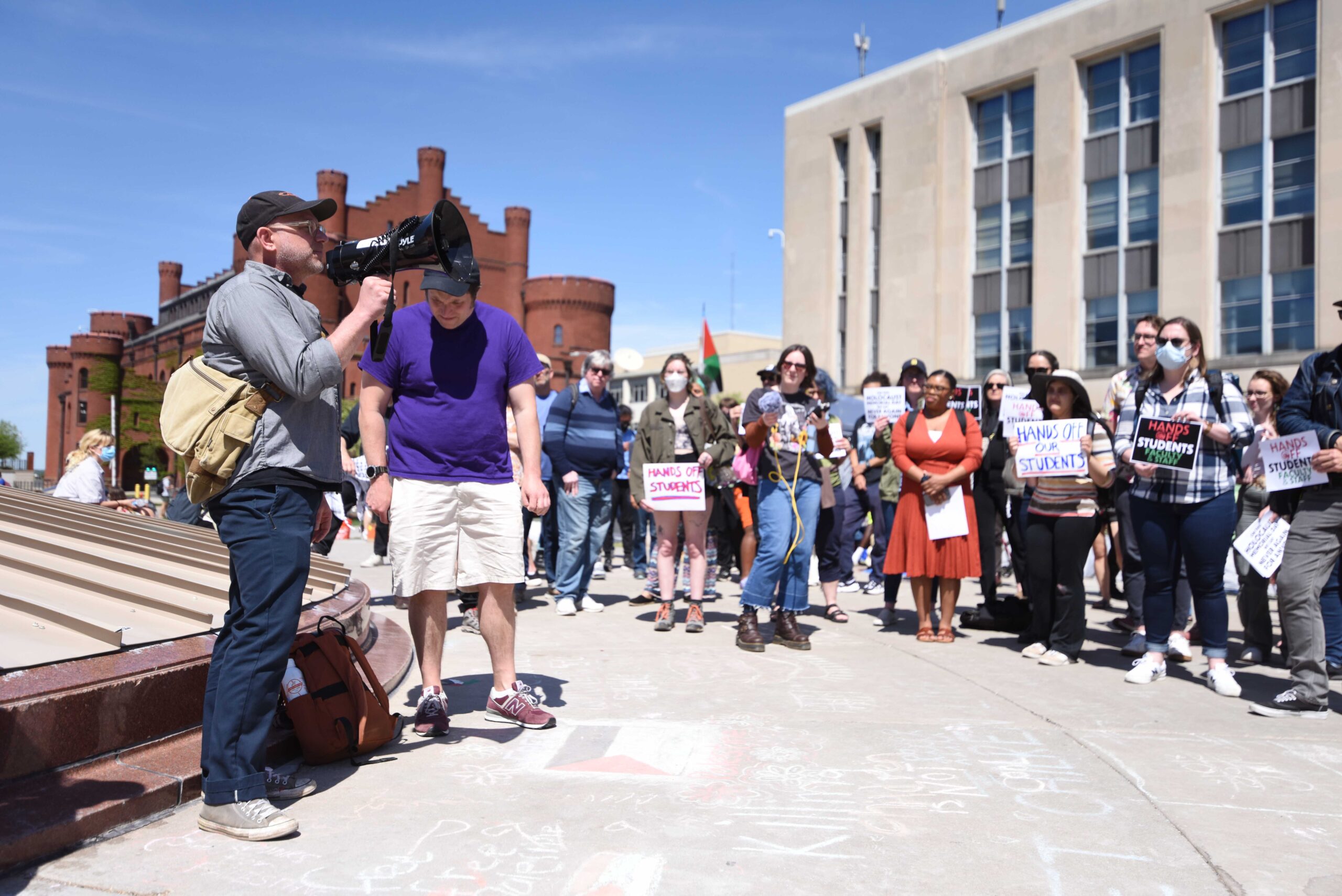
Wisconsin Public Radio, © Copyright 2025, Board of Regents of the University of Wisconsin System and Wisconsin Educational Communications Board.

